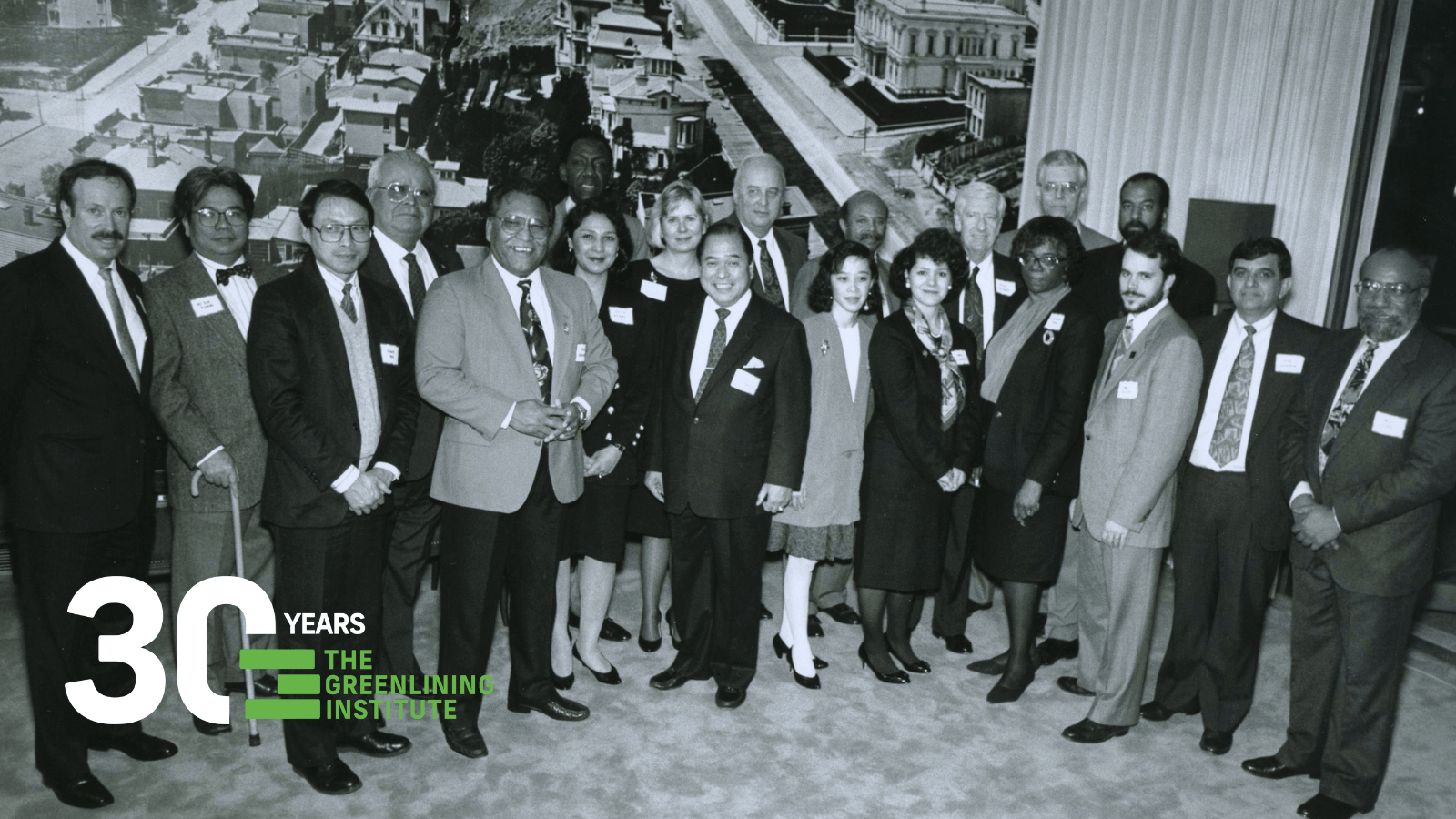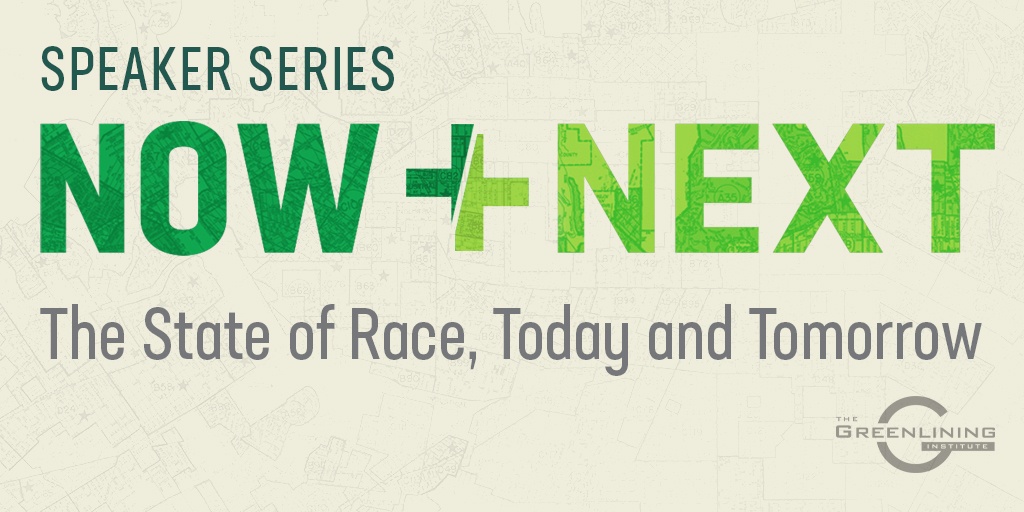Make Racial Equity Central to California’s Public Health Response to COVID-19
As our federal and state governments work to mitigate the health and economic consequences of COVID-19, we must center racial equity in the distribution and implementation of emergency response funds. As Greenlining has noted, the COVID-19 pandemic has exposed our nation’s pandemic of inequality and calls on us to both address immediate needs and address the underlying inequities that make those needs worse. We must think beyond just “getting back to normal,” but also focus on the urgent needs of vulnerable communities.
California has been praised for taking early action to stop the spread of the virus and curb the economic downturn, but if we don’t consciously prioritize low income communities of color, many families will not receive the support they need to survive and recover from this pandemic.
This health crisis affects all of us, and priority support should be provided to vulnerable populations like our elders, low-income families of color, undocumented folks and newcomers to our state, and diverse businesses, which we know will be impacted most greatly by the health and economic consequences of the pandemic.
On April 1, Gov. Gavin Newsom signed an executive order for immediate use of $1.3 billion in disaster response funds as a supplement to the $1 billion in general funds that were made available before the legislature’s recess in March. During a time of rapid response and decision-making, The Greenlining Institute has written a letter to the governor and legislature urging them to lead with health and racial equity by giving the following healthcare items top priority to help California address COVID-19:
Right now we are witnessing the very real negative impacts of failing to invest in prevention and the equitable treatment of all Californians in an emergency.”
KELSEY LYLES, HEALTH EQUITY PROGRAM MANAGER
Increase Access to Care for the Most Vulnerable
1. Expedite Access to Full Scope Medi-Cal for Elders (65+) Regardless of Immigration Status –
We thank Governor Newsom for including the Health4Elders proposal in the initial 2020-21 budget, but are concerned that in his April 2 press briefing he hinted that he might back off from this commitment. Elders in our families are a high risk group for experiencing severe complications and even death from COVID-19. The Health4Elders proposal would provide full-scope Medi-Cal to an estimated 27,000 low-income undocumented elders ages 65 and older by removing immigration status as an eligibility exclusion. As part of the Health4All Coalition, we stand with the California Immigrant Policy Center and partners to urge the legislature to act immediately to remove the immigration status eligibility exclusion to full-scope Medi-Cal for undocumented elders as soon as possible to prevent harm during this pandemic. This is a life-and-death emergency and not a place to look for budget savings.
2. Prioritize Emergency Funding & Resources for Primary Care Clinics & Community Health Centers –
As health systems become overburdened with COVID-19 case loads, the state must support licensed community clinics and health centers, which provide essential health services to underserved communities and low-income neighborhoods regardless of a family’s ability to pay for care. Local clinics and community health centers are California’s health care safety net for many neighborhoods that lack access to amenities and provide essential care for California’s ethnically diverse neighborhoods, women, and children. While full service hospitals and larger health systems are also important, local clinics get by with minimal support and urgently need assistance to respond in this emergency.
3. Expand Access to Free Telehealth & Internet Services for Low-income Families –
Telehealth services are critical during shelter-in-place to give families access to health screenings and to reduce the burden of in-person patient visits. The legislature should waive telehealth medical fees and copays during this time to encourage more Californians to seek preventative screening and consultation and stop the spread of COVID-19. Furthermore, the need for telehealth emphasizes how vital it is for households to have affordable internet access. Internet service allows us to respond quickly in a crisis and get vital health and safety information. However, many low income households lack access to affordable internet services. We need an immediate response: ban disconnections for nonpayment and implement a statewide all-fiber infrastructure project to help bridge the digital divide and provide jobs to help soften the impact of the economic downturn caused by COVID-19.
Hold Hospitals Accountable to Racial Equity
4. Provide Oversight on Cost Containment & Excessive Medical Billing to Hospitals –
In an emergency, a patient may unknowingly be taken to a hospital that is outside of their medical network for treatment and get stuck with a huge bill not covered by insurance. AB 1611 (Chiu) would provide oversight and require that out-of-network emergency care services are to be offered at the same cost as a patient’s in-network provider at the time of billing. We stand with Health Access and partners to urge the governor to sign this bill into law given the urgency of this issue. We must ensure that low income California families who are already negatively impacted by this financial crisis are not also burdened with excessive medical fees and debt.
5. Encourage Hospital Contracts and Procurement with Diverse Businesses –
As large health systems increase their spending to buy emergency equipment, supplies, and support routine organizational functions (e.g., legal, janitorial, communications, and food services) they should prioritize contracts and procurement with minority-, women-, veteran-, and LGBTQ-owned businesses to support and protect local businesses from the economic downturn. Implementation of AB 962 (Burke) is a first step towards hospital transparency and accountability in supplier diversity, but we need action immediately and cannot wait for hospitals to be incentivized to support diverse businesses through reporting requirements.
As the health and economic impacts of the pandemic unfold, we need our elected officials to prioritize supporting the most vulnerable now more than ever. As proponents of progressive (and, some would even argue, “aspirational”) policies like universal healthcare for all, we receive pushback that implementation is too costly, that the state cannot afford to insure and support everyone, or that it is too expensive to serve and protect all of us.
But right now we are witnessing the very real negative impacts of failing to invest in prevention and the equitable treatment of all Californians in an emergency. And we’re also seeing the sudden availability of and willingness to use massive funding because it’s clearly needed. California must lead in making racial and health equity a reality.
Kelsey Lyles is Greenlining’s Health Equity Program Manager. To receive updates on our ongoing response to the Coronavirus pandemic, sign up for The Greenlining Institute’s newsletter.



